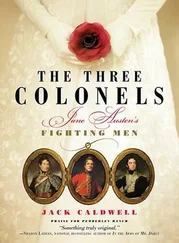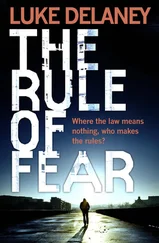Strange thing, time. It weighs most on those who have it least. Nothing is lighter than being young with the world on your shoulders; it gives you a feeling of possibility so seductive, you know there must be something more important you could be doing than studying for exams.
I can see myself now, the night it all began. I'm lying back on the old red sofa in our dorm room, wrestling with Pavlov and his dogs in my introductory psychology book, wondering why I never fulfilled my science requirement as a freshman like everyone else. A pair of letters sits on the coffee table in front of me, each containing a vision of what I could be doing next year. The night of Good Friday has fallen, cold April in Princeton, New Jersey, and with only a month of college left I'm no different from anyone else in the class of 1999: I'm having trouble getting my mind off the future.
Charlie is sitting on the floor by the cube refrigerator, playing with the Magnetic Shakespeare someone left in our room last week. The Fitzgerald novel he's supposed to be reading for his final paper in English 151w is spread open on the floor with its spine broken, like a butterfly somebody stepped on, and he's forming and re-forming sentences from magnets with Shakespearean words on them. If you ask him why he's not reading Fitzgerald, he'll grunt and say there's no point. As far as he's concerned, literature is just an educated man's shell game, three-card monte for the college crowd: what you see is never what you get. For a science-minded guy like Charlie, that's the height of perversity. He's headed for medical school in the fall, but the rest of us are still hearing about the C-plus he found on his English midterm in March.
Gil glances over at us and smiles. He's been pretending to study for an economics exam, but Breakfast at Tiffany's is on, and Gil has a thing for old films, especially ones with Audrey Hepburn. His advice to Charlie was simple: if you don't want to read the book, then rent the movie. They'll never know. He's probably right, but Charlie sees something dishonest in that, and anyway it would prevent him from complaining about what a scam literature is, so instead of Daisy Buchanan we're watching Holly Golightly yet again.
I reach down and rearrange some of Charlie's words until the sentence at the top of the fridge says to fail or not to fail: that is the question.Charlie raises his head to give me a disapproving look. Sitting down, he's almost as tall as I am on the couch. When we stand next to each other he looks like Othello on steroids, a two-hundred-and-fifteen-pound black man who scrapes the ceilings at six-and-a-half feet. By contrast I'm five-foot-seven in shoes. Charlie likes to call us Red Giant and White Dwarf, because a red giant is a star that's unusually large and bright, while a white dwarf is small and dense and dull. I have to remind him that Napoleon was only five-foot-two, even if Paul is right that when you convert French feet to English, the emperor was actually taller.
Paul is the only one of us who isn't in the room now. He disappeared earlier in the day, and hasn't been seen since. Things between him and me have been rocky for the past month, and with all the academic pressure on him lately, he's chosen to do most of his studying at Ivy, the eating club where he and Gil are members. It's his senior thesis he's working on, the paper all Princeton undergrads must write in order to graduate. Charlie, Gil, and I would be doing the same ourselves, except that our departmental deadlines have already come and gone. Charlie identified a new protein interaction in certain neuronal signaling pathways; Gil managed something on the ramifications of a flat tax. I pasted mine together at the last minute between applications and interviews, and I'm sure Frankenstein scholarship will forever be the same.
The senior thesis is an institution that almost everyone despises. Alumni talk about their theses wistfully, as if they can't remember anything more enjoyable than writing one-hundred-page research papers while taking classes and choosing their professional futures. In reality, a senior thesis is a miserable, spine-breaking thing to write. It's an introduction to adult life, a sociology professor told Charlie and me once, in that annoying way professors have of lecturing after the lecture is over: it's about shouldering something so big, you can't get out from under it. It's called responsibility , he said. Try it on for size . Never mind that the only thing he was trying on for size was a pretty thesis advisee named Kim Silverman. It was all about responsibility. I'd have to agree with what Charlie said at the time. If Kim Silverman is the sort of thing adults can't get out from under, then sign me up. Otherwise, I'll take my chances being young.
Paul is the last of us to finish his thesis, and there's no question that his will be the best of the bunch. In fact, his may be the best of our entire graduating class, in the history department or any other. The magic of Paul's intelligence is that he has more patience than anyone I've ever met, and with it he simply wears problems down. To count a hundred million stars, he told me once, at the rate of one per second, sounds like a job that no one could possibly complete in a lifetime. In reality, it would only take three years. The key is focus, a willingness not to be distracted. And that is Paul's gift: an intuition of just how much a person can do slowly.
Maybe that's why everyone has such high expectations for his thesis— they know how many stars he could count in three years, but he's been working on his thesis for almost four. While the average student comes up with a research topic in the fall of senior year and finishes it by the next spring, Paul has been struggling with his since freshman year. Just a few months into our first fall semester, he decided to focus on a rare Renaissance text entitled Hypnerotomachia Poliphili , a labyrinthine name I can pronounce only because my father spent most of his career as a Renaissance historian studying it. Three and a half years later, and barely twenty-four hours from his deadline, Paul has enough material to make even the most discriminating graduate programs salivate.
The problem is, he thinks I ought to be enjoying the fanfare too. We worked on the book together for a few months during the winter, and made good progress as a team. Only then did I understand something my mother used to say: that men in our family had a tendency to fall for certain books about as hard as they fell for certain women. The Hypnerotomachia may never have had much outward charm, but it has an ugly woman's wiles, the slow addictive tug of inner mystery. When I caught myself slipping into it the same way my father had, I managed to pull myself out and throw in the towel before it could ruin my relationship with a girlfriend who deserved better. Since then, things between Paul and me haven't been the same. A graduate student he knows, Bill Stein, has helped with his research since I begged off. Now, as his thesis deadline approaches, Paul has become strangely guarded. He's usually much more forthcoming about his work, but over the past week he's withdrawn not only from me but from Charlie and Gil too, refusing to speak a word of his research to anyone.
So, which way are you leaning, Tom? Gil asks.
Charlie glances up from the fridge. Yeah, he says, we're all on tenterhooks.
Gil and I groan. Tenterhooks is one of the words Charlie missed on his midterm. He attributed it to Moby-Dick instead of Tobias Smollett's Adventures of Roderick Random on the grounds that it sounded more like a kind of fishing lure than a word for suspense. Now he won't let it go.
Get over it, Gil says.
Name me one doctor who knows what a tenterhook is, Charlie says.
Читать дальше












